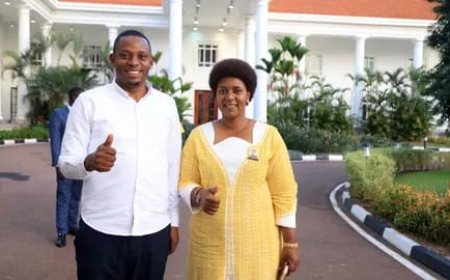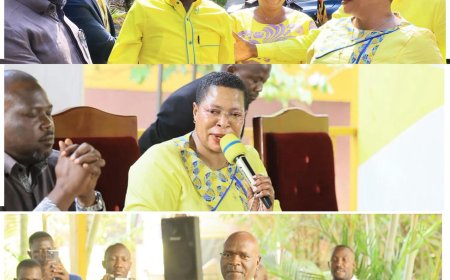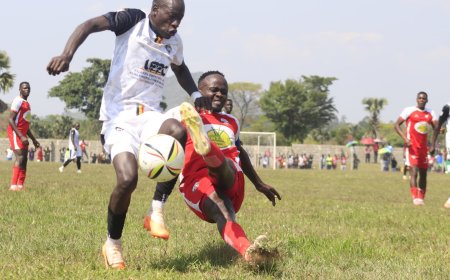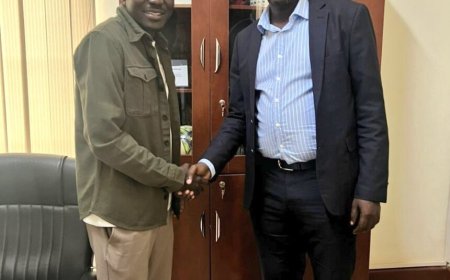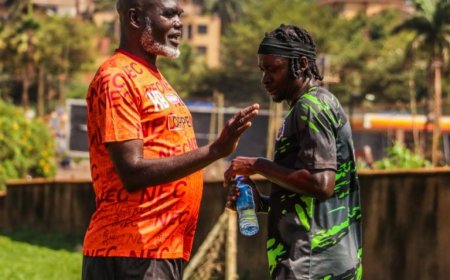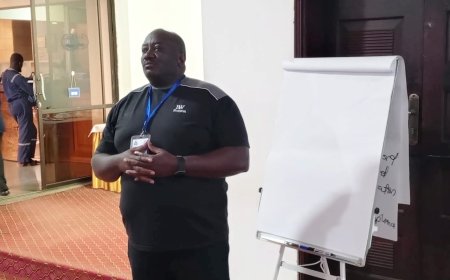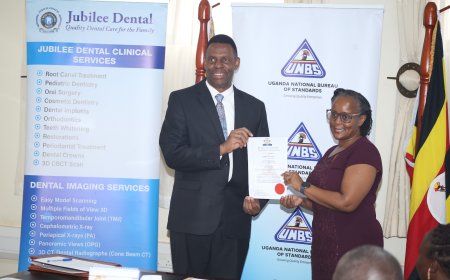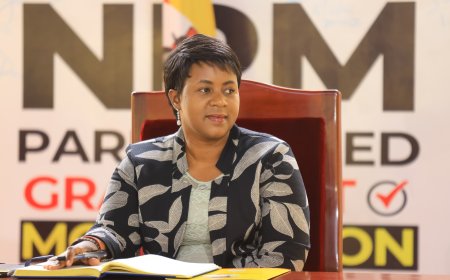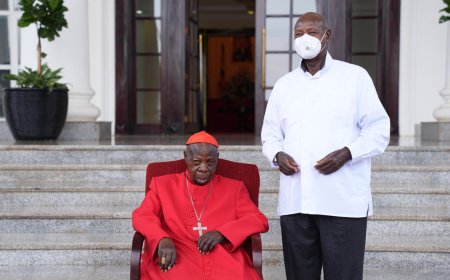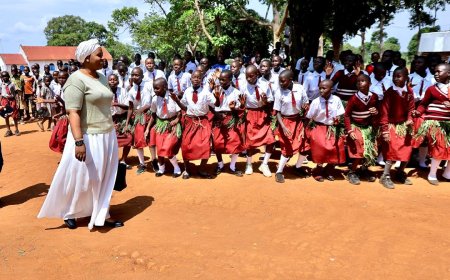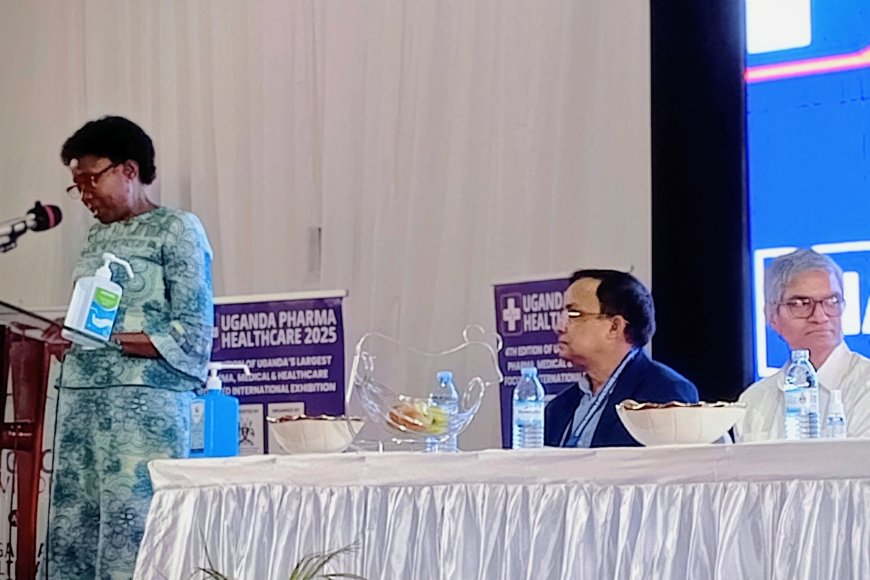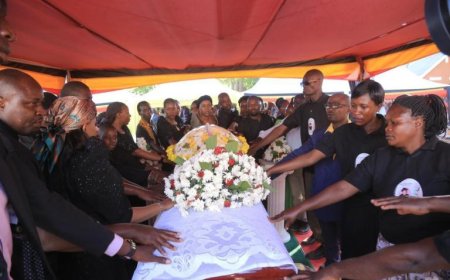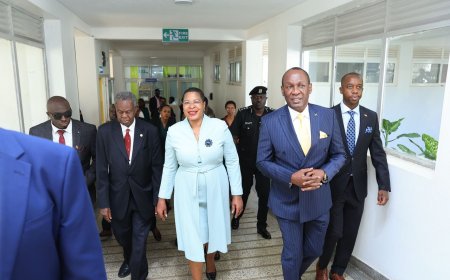Charting Progress, Shaping the Future: Dr. Nelson Musoba on Uganda’s HIV Response
Under Dr. Musoba’s stewardship, Uganda has sustained one of Africa’s most coherent and inclusive HIV responses—one anchored in science, political leadership, and community involvement.
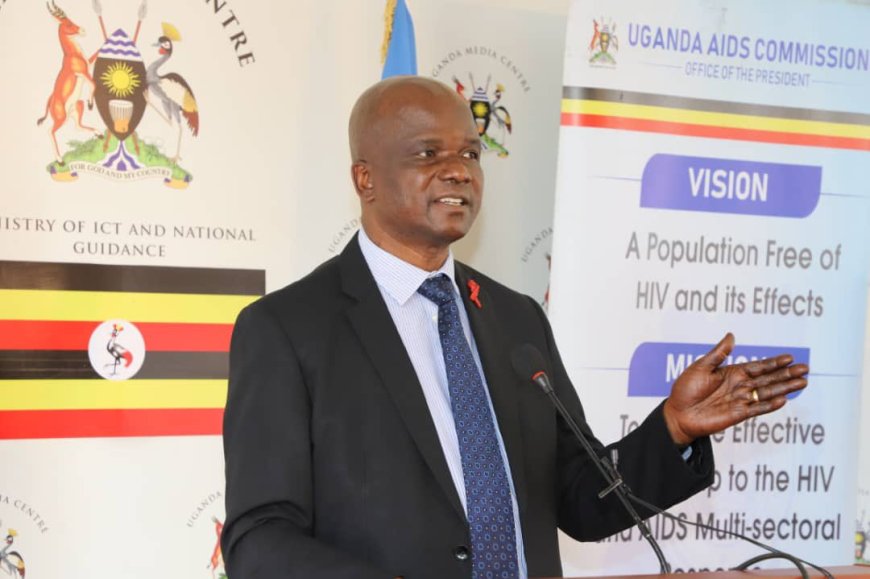
As Uganda prepares for the National HIV and AIDS Symposium and the 2025 World AIDS Day commemoration, the spotlight is once again cast on the Uganda AIDS Commission (UAC) and its Director General, Dr. Nelson Musoba, a leader whose tenure has been defined by data-driven interventions, multi-sectoral coordination, and an unwavering commitment to ending AIDS as a public health threat by 2030.
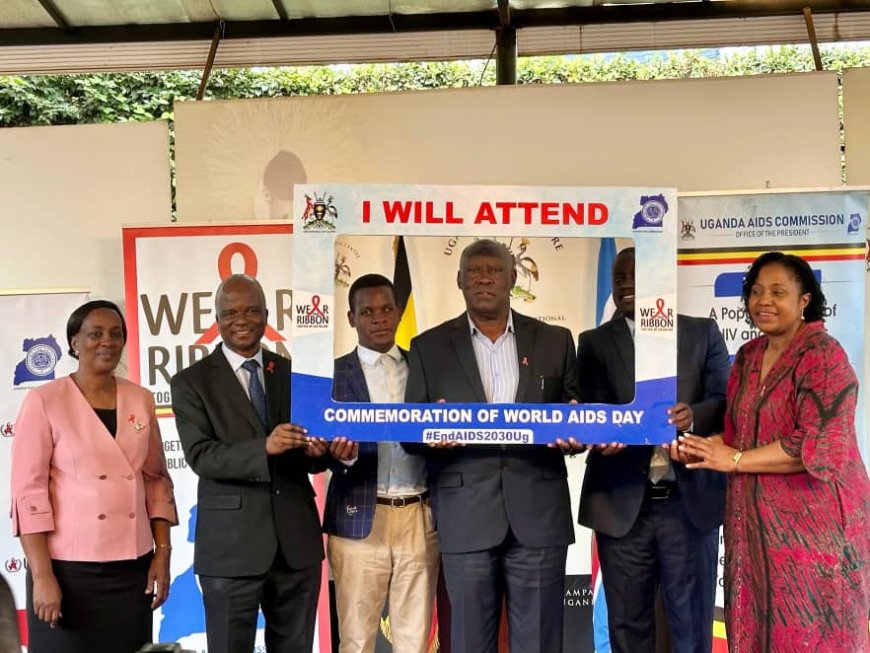
Under Dr. Musoba’s stewardship, Uganda has sustained one of Africa’s most coherent and inclusive HIV responses—one anchored in science, political leadership, and community involvement. His remarks at the Uganda Media Centre ahead of the upcoming events highlighted the country’s progress, the remaining challenges, and the strategic direction guiding the national HIV response.
A Record of Progress Built on Vision and Coordination
Uganda’s HIV prevalence has dramatically dropped from 18% in the 1980s to 4.9% today, a milestone achieved through decades of relentless policy and community interventions. Dr. Musoba noted that an estimated 1.5 million Ugandans are currently living with HIV, with 1.3 million already receiving treatment—a key measure of Uganda’s expanding treatment coverage.
New infections have also steadily declined. In 2010, Uganda registered 94,000 new HIV infections, but by 2024 the number had fallen to 37,000. AIDS-related deaths similarly dropped from 54,000 in 2010 to 20,000 today, reflecting improved access to antiretroviral therapy and viral load suppression services.
Yet, as Dr. Musoba emphasized, these national gains hide deep gender disparities. HIV prevalence remains significantly higher among women, while men lag behind in testing and treatment uptake—leading to higher AIDS-related mortality among men. Addressing these gaps remains central to Uganda’s strategy.
Driving Uganda’s Response Through the Presidential Fast-Track Initiative
A hallmark of Dr. Musoba’s leadership is his strong alignment with the Presidential Fast Track Initiative (PFTI), launched in 2017 by President Yoweri Kaguta Museveni. Dr. Musoba describes the initiative as Uganda’s “master plan” for accelerating progress toward the global 95-95-95 HIV treatment targets and ending AIDS by 2030.
The PFTI is structured around five pillars:
Engaging men and protecting adolescent girls and young women from new infections
Accelerating HIV testing and treatment to achieve the 95-95-95 goals
Consolidating progress in eliminating mother-to-child transmission
Ensuring sustainable financing for the HIV response
Strengthening coordination of a multi-sectoral HIV response
Thanks to this approach, Uganda has reached 94:90:97 toward the 95-95-95 targets—an achievement Dr. Musoba attributes to coordinated national efforts.
Preparing for the 2025 National HIV and AIDS Symposium
This year’s National HIV and AIDS Symposium, scheduled for 26–28 November at Mbarara University of Science and Technology (MUST), will bring together government agencies, development partners, researchers, civil society, and ordinary Ugandans under the theme: “Building a Sustainable HIV Response to End AIDS as a Public Health Threat in Uganda.”
Unlike previous years, where engagements were confined to conference rooms, UAC under Dr. Musoba has opened the symposium to the public to ensure wider participation and grassroots awareness.
Activities will include:
The 17th Joint AIDS Review
The National HIV and AIDS Scientific Meeting
Commemoration of Philly Lutaaya Day
A national HIV financing dialogue Scientific oral and poster presentations
Performances, including renditions of Philly Lutaaya’s iconic songs
Free HIV testing, counselling, and other health services
Exhibitions by partner organizations
The chief guest will be Prof. Pauline Byakika-Kibwika, Vice Chancellor of MUST.
Dr. Musoba emphasized that this open-format approach reinforces Uganda’s commitment to transparency, inclusiveness, and community involvement in the HIV response.
Building Momentum Toward World AIDS Day 2025
The symposium will culminate in preparations for World AIDS Day 2025, which will be commemorated on 1 December in Bushenyi District, Kizinda Town Council. President Yoweri Kaguta Museveni is expected to preside over the national event under the global theme: “Overcoming disruption, transforming the AIDS response.”
Dr. Musoba acknowledged the President’s consistent leadership and the contributions of political, religious, cultural, and community leaders in reducing stigma, combating misinformation, and expanding access to services.
A Champion for Collaboration and People-Centered Delivery
Throughout his career, Dr. Musoba has emphasized the centrality of partnerships in achieving HIV goals. In his briefing, he recognized:
People living with HIV networks for their advocacy
Development partners for long-standing financial and technical support
Researchers and health workers for driving innovations in prevention, diagnostics, and treatment
Cultural and religious leaders for helping reduce stigma and mobilize communities
His stewardship is credited for strengthening coordination across Uganda’s diverse actors—from academia and local governments to performing arts groups and the private sector.
Looking Ahead: The Final Push Toward 2030
While Uganda has made impressive strides, Dr. Musoba is clear-eyed about the work ahead. Persistent gender disparities, lingering stigma, pockets of high transmission, and financing gaps remain obstacles. But he remains confident that with sustained political will, community involvement, and evidence-based interventions, Uganda can indeed achieve an AIDS-free generation.
As the country gathers in Mbarara and later Bushenyi, Dr. Nelson Musoba stands as one of the key architects guiding Uganda toward that vision—firmly focused on data, inclusion, and the belief that ending AIDS is not only possible, but within reach.
